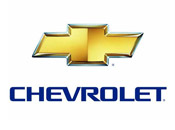Vehicles > Chevrolet > Traverse
Chevrolet Traverse Insurance Rates
Drivers have lots of options when comparing insurance rates on your Chevrolet vehicle. You can either contact an insurance agent or get quotes online to compare pricing from insurance carriers. Comparing car insurance by getting online quotes saves time, is easy to do, plus you may find lower rates.
Using the web to shop for car insurance direct can be difficult if you are a beginner to online quotes. Don't let that stop you because we're going to show you how. The are a couple different ways to compare rate quotes from car insurance companies in your area. One of the best ways to find the lowest Traverse insurance cost involves getting comparison quotes online. This can be done by visiting this page.
Rates are determined by these things
Insurance premiums for your Chevrolet Traverse can vary widely and are calculated by many factors. Including but not limited to:
- High performance increases premiums
- Any accidents you may have
- Home and auto can earn discounts
- Pleasure, commuting or business use can affect rates
- Add-on coverages such as rental reimbursement
- Your job
- The amount of protection requested
- Home ownership saves money
One important consideration that can impact your rates is the age of the vehicle. Used vehicles have a lower value compared to new Chevrolet models so the payout to repair may end up costing you less. But new Chevrolet models have more advanced features including pedestrian detection, dual-stage airbags, a rollover prevention system, and automatic crash notification which can provide discounts that lower premiums.
To get more specific information about how much rates will be for your vehicle, select the year of your Traverse from the list below.
- 2018 Chevrolet Traverse Insurance Rates
- 2017 Chevrolet Traverse Insurance Rates
- 2016 Chevrolet Traverse Insurance Rates
- 2015 Chevrolet Traverse Insurance Rates
- 2014 Chevrolet Traverse Insurance Rates
- 2013 Chevrolet Traverse Insurance Rates
- 2012 Chevrolet Traverse Insurance Rates
- 2011 Chevrolet Traverse Insurance Rates
- 2010 Chevrolet Traverse Insurance Rates
- 2009 Chevrolet Traverse Insurance Rates
Liability - This provides protection from damage or injury you incur to other's property or people. Liability coverage pays for claims like pain and suffering, repair costs for stationary objects, and legal defense fees. It is cheap coverage so buy higher limits if possible.
Collision coverages - This coverage pays to fix your vehicle from damage resulting from colliding with a stationary object or other vehicle. You will need to pay your deductible then the remaining damage will be paid by your insurance company. Collision coverage makes up a good portion of your premium, so analyze the benefit of dropping coverage from lower value vehicles. Another option is to increase the deductible to save money on collision insurance.
Comprehensive or Other Than Collision - Comprehensive insurance coverage will pay to fix damage from a wide range of events other than collision. You first must pay your deductible then your comprehensive coverage will pay. The maximum payout your car insurance company will pay is the cash value of the vehicle, so if the vehicle is not worth much consider removing comprehensive coverage.
Uninsured and underinsured coverage - Uninsured or Underinsured Motorist coverage gives you protection when the "other guys" either have no liability insurance or not enough. Because many people only purchase the least amount of liability that is required, it doesn't take a major accident to exceed their coverage limits. For this reason, having high UM/UIM coverages is a good idea.
Medical costs insurance - Medical payments and Personal Injury Protection insurance kick in for immediate expenses like EMT expenses, pain medications, and nursing services. The coverages can be utilized in addition to your health insurance policy or if there is no health insurance coverage. PIP coverage is not universally available but can be used in place of medical payments coverage.
How Much are Chevrolet Traverse Insurance Rates?

